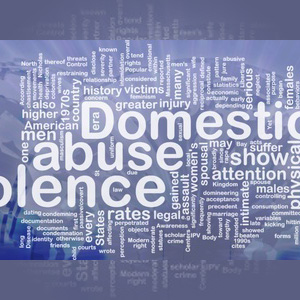
It’s possible you’ve heard plenty of stories from other people about the New Jersey divorce process. And maybe you’re thinking you have a pretty good idea how things are likely to work out for you in a divorce proceeding, too. But there are too many areas where your circumstances may differ from others, and your story may lead to a completely different outcome. Sometimes couples in New Jersey think that the only issue may be child custody if there are children involved in the divorce. But many other issues become important in the course of a divorce, either in a formal mediation process or eventually in court. Here are some examples you might want to consider now: Prenuptial agreements Alimony or spousal support Grandparent rights Private school tuition Medical, dental and eyesight expenses Business assets Vacation property Debt and possible…Read More

New Jersey courts generally view a college education as a necessity, and the cost of college as the responsibility of the parents, not the student. Parents who are seeking a divorce when their child is in college or entering college may be able to have the same court deal with the issue of who pays college tuition at the time of their divorce. If their children are much younger and not yet ready for college the divorce judge may anticipate the cost of college tuition and stipulate how it shall be paid in the future. Children who are already attending college are rarely granted emancipation on the motion of a parent during a divorce, possibly attempting to avoid the responsibility to continue paying college tuition. But New Jersey divorce courts will consider a number of factors when making a determination…Read More

The Family Case Information Statement (CIS) is a document that gets filed with the County Clerk at the time your contested family action begins. It is basically a summary of important information for the court’s purposes during the course of litigation, and it must be kept current whenever information changes. The CIS consists of six separate parts, and each part requires a thorough understanding in order to be completed accurately. For most litigants filing or answering a petition for divorce, or subsequent actions involving child support, alimony, or equitable distribution of real or personal property, the CIS represents a significant investment of their personal attention, as well as their lawyer’s time. Here are the parts of the CIS in New Jersey: Case Information – the parties’ names and dates, including those of the children of the marriage Miscellaneous Information –…Read More

Stepparents have one of the toughest jobs in the world. Stepping into the shoes of a child’s parent, even if it’s only part-time, is basically an impossible task. Children of any age who have a relationship with each of their birth parents have to find different role for a stepparent in their lives. Naturally, they aren’t conscious of the underlying complexity of another semi-parental relationship, but you are, as the stepparent. Starting and managing a stepparent relationship is tough enough, but ending it can be even more difficult to navigate in terms of the feelings and the legal issues involved. Sadly, when there’s a divorce involving a stepparent the best interests of the stepchildren are not often top-of-mind for the birth parent or the stepparent. Nobody usually has a sharp focus on continuity of relationship, and that includes the divorce…Read More

New Jersey is among the majority of states in which child adoption records are sealed, which is known as a “closed adoption.” Prior to 1941 New Jersey adoption records were open, meaning they are public information. But since 1941 adoption records are confidential and not available to the public. A closed adoption means the adopted child and the adopting parents and also the birth parents won’t know each other’s names or contact information any point in the adoption process, or after it is completed. In many cases there is a birth mother only because the birth father’s name is not shown on a birth certificate, meaning the child and the adopting parents have no record of the birth mother’s name, family history or location. Historically, the purpose of sealing adoption records was protection of the new family’s rights from any…Read More

Navigating the child adoption laws in New Jersey will start with a decision. First, you must know whether you intend to adopt a child from the United States or from a foreign country. The laws are different, so you will need to make that decision in order to focus on the laws that apply to you and your own situation. In either a domestic or an international adoption you will be required to provide a great deal of information about yourself, such as your family history, your medical history and your present living arrangements and financial condition. People are often surprised at the depth and breadth of questions they are required to answer in the process of becoming adoptive parents. It’s good to keep in mind that protecting the health and safety of the children is the main goal, even…Read More

Getting off to the right start to gain understanding of the Child Support Guidelines in New Jersey means knowing exactly who you are, and understanding your legal position in a child support matter as defined in the Guidelines. While you may not know for sure who will be paying child support, or how much child support a court will order, your best choice may be speaking to a family law expert, a lawyer who knows how it usually works for all parties involved in child support matters. The Guidelines are long and complex, and they are also interpreted by precedent, or previous court decisions that may impact your own case in one way or another. Even if you chose to read the New Jersey Child Support Guidelines and draw some conclusions regarding your own situation, it’s very likely you’ll miss…Read More

Statistics show that 1 out of 3 Americans is now or has been a step parent. It is a very common situation in New Jersey as well as other states. Although many people become step parents, they frequently have little understanding of their legal rights, during a marriage to the childrens’ parent and after a divorce from that person as well. Everyone’s situation as a step parent is not the same, by any means, and consulting a family lawyer is advisable to know and understand your legal status in any matter involving your current or past relationship with stepchildren, or your concern regarding a spouse or ex-spouse who is a step parent to your children. Historically, a step parent does not have custody rights during or following a marriage to a child’s parent. If the child’s other parent is deceased…Read More

If you or a family member is suffering in an abusive relationship with someone close to you, it’s important to understand the meaning of the word “domestic” in the common legal phrase, “domestic violence.” In the state of New Jersey, The Prevention of Domestic Violence Act protects people who are 18 years of age or older, or those who have become emancipated under the age of 18 as a result of marriage, military service, pregnancy, parenting, or emancipated by court order for some other reason. In other words, domestic violence does not cover children who are abused. They are covered under separate laws. The Prevention of Domestic Violence Act is designed to protect adults. And the word “domestic,” for the purposes of this law, refers to someone who is or has been close to you, such as a current spouse…Read More

As of early September 2014 the New Jersey Alimony Laws have changed significantly. While many people are happy to see the old laws being updated, others don’t think the alimony reform goes far enough. So what’s it all about? What has changed? First of all, nothing changes for court-ordered alimony payments put in place in the past. The terms of existing alimony orders are grandfathered-in and unaffected by the recent law changes. The law applies only to future divorces establishing alimony payments. But there are several very significant changes to keep in mind if you are contemplating a divorce in New Jersey that will provide for alimony payments: There is now a “rebuttable presumption” that alimony payments can come to an end when the person who is making the payments reaches “full retirement age,” presently 67 years old; A judge…Read More
